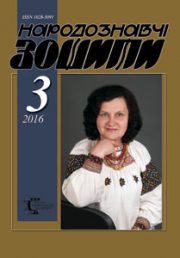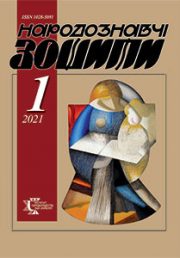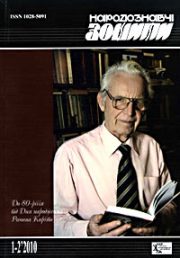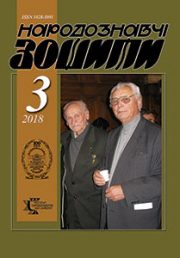The Ethnology Notebooks. 2018, 6 (144), 1618–1622
UDK 730.071.1(092)”19″
DOI https://doi.org/10.15407/nz2018.06.1618
THE CONCEPTUALITY OF THE WORLD VIEW ALEXANDRA ARHIPENKO
Received 21.11.2018
ORCID ID: https://orcid.org/0000-0002-7792-3714
Klymenko Mariya, PhD student, аrt practice,
Lviv National Academy of Arts,
38 Kubiiovycha Str., 79011, Lviv, Ukraine.
Contacts: e-mail: klymenkomary@gmail.com
Abstract. Conceptual foundations of the well-known sculptor Alexander Archipenko’s art (1887—1964) have been considered in the article. A breadth of the sculptor’s novelties and theoretical thoughts have been analyzed. The attention has been concentrated on the ideological-aesthetic content which is the imperative in the search of the visual image. The valuable equivalent of Alexander Archipenko’s inner-motivated plastic arts has been elucidated. The unity of psychological and semantic resources in the change of the ideological paradigms of shaping has been underlined. The main features of the author’s methodology of the sculptor were the bases of the formation of the XX-th century Avant-gardism.
Keywords: Alexander Archipenko, sculptor, conception of the plastic arts, ideological-aesthetic content, visual image, Avant-garde.
REFERENCES
Azyzian, Y. (2010). Alexander Archypenko. Moskva: Prohress-Tradytsyia. In Alexander Archypenko. Piatdesiat tvorcheskikh let. 1908—1958. (1960). New-York [in Russian].
Berhson, H. (2010). Tvorcha evoliutsiia (Creative evolution). Kyiv: Zhupanskoho [in Ukrainian].
Frances Archipenko Gray. (2014). My Life with Alexander Archipenko. In Frances Archipenko Gray (P. 206). Munich [in German].
Galerie, Thomas. (2009). Alexander Archipenko: Sculpturen, Sculptures. Munich [in German].
Jaroslav Leshko (exhibition curator). (2006). Alexander Archіpenko vision and continuity. New York: The Ukrainian Museum [in Ukrainian].
Nestor, Rzepecki. (1970, february). Archipenko. Etudiant/Student. Ukrainian Canadian Students’ Union (SUSK), 6 (Vol. 3).
Retrieved from: http://www.seattleweekly.com/arts/at-the-fryes-archipenko-exhibit-whats-present-is-as-revealing-as-what-isnt/.
Retrieved from: http://www.artsandartists.org/exhibitions/available-archipenko.
Retrieved from: www.slovopedia.org.ua.







